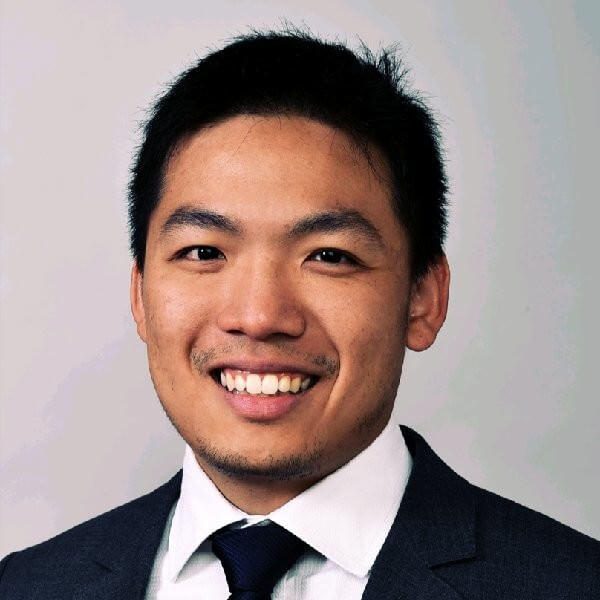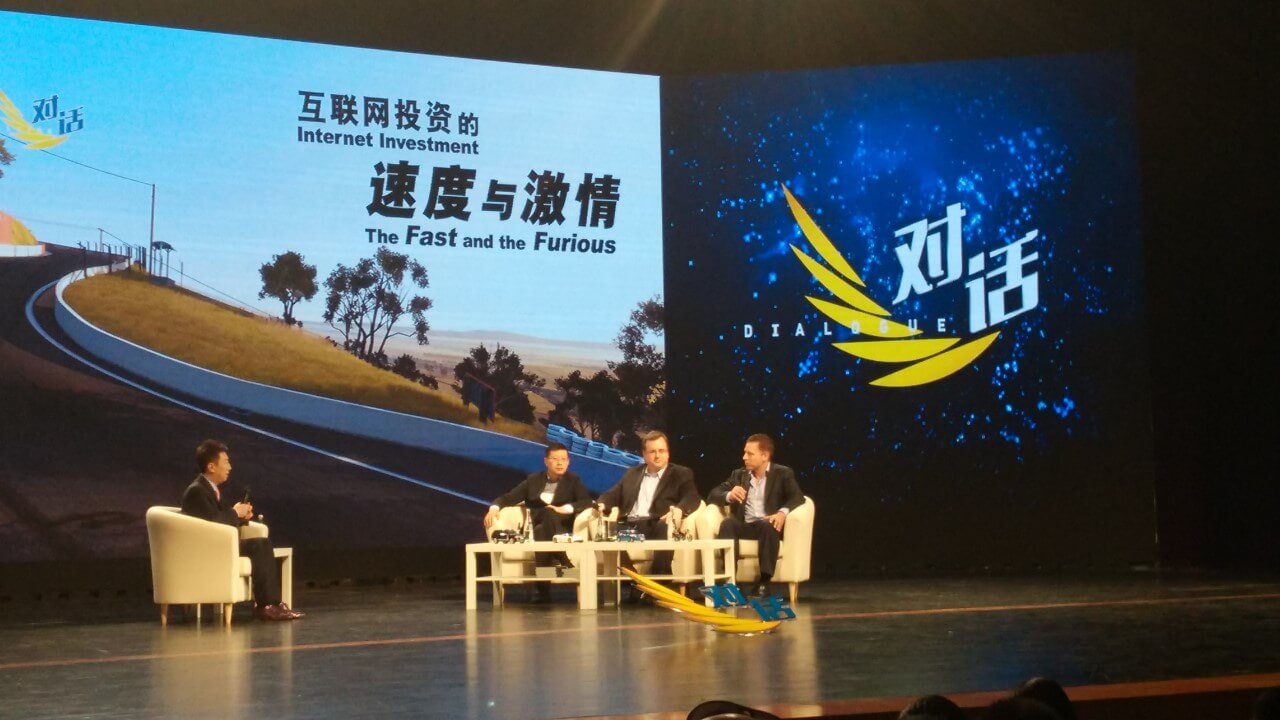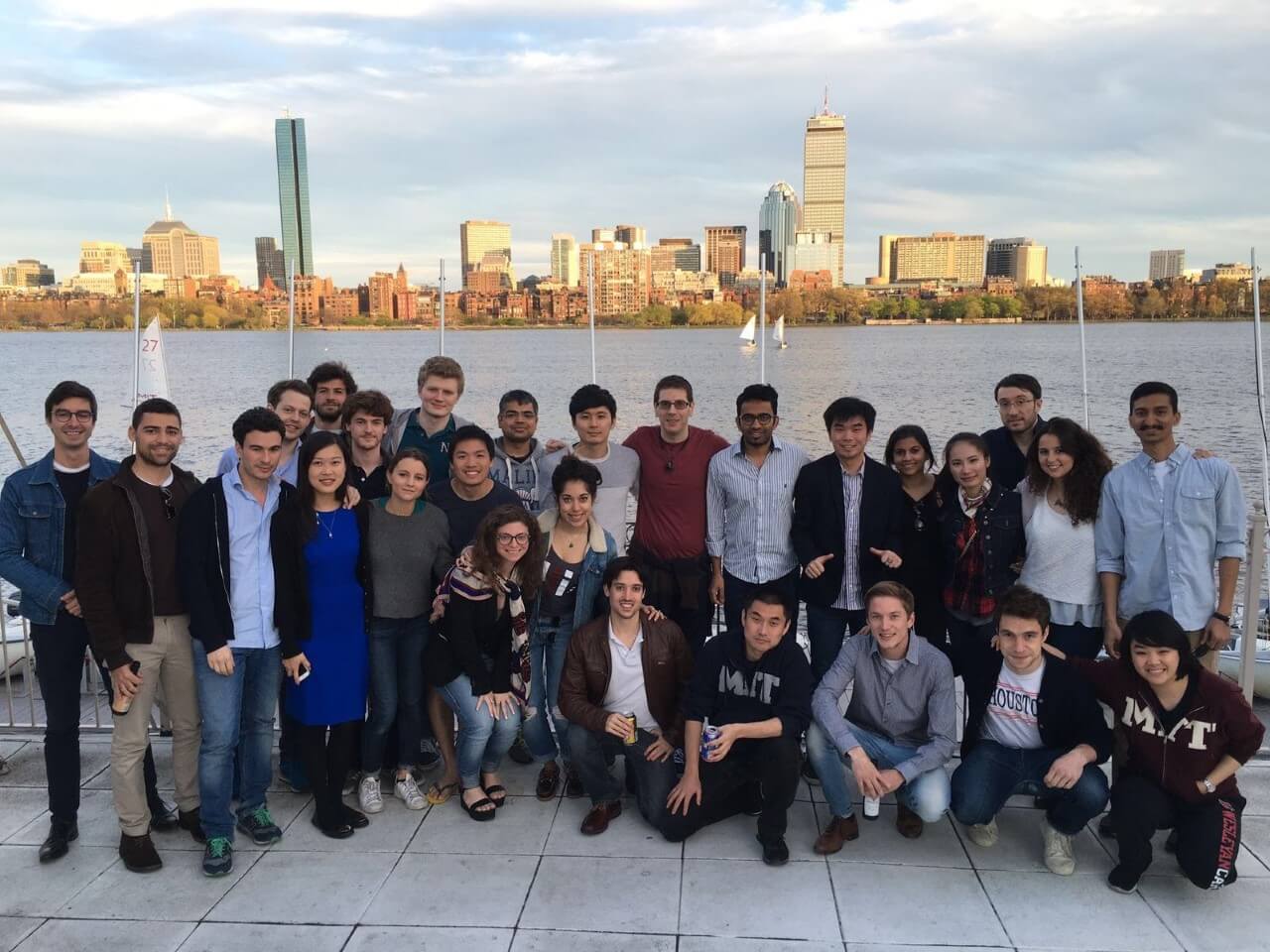Napol Kamthornkittikul enrolled on the Tsinghua-MIT Global MBA-MIT Sloan MSMS dual degree to develop his understanding of business and finance, and swapped investment banking for private equity
Napol (left) enrolled on the Tsinghua-MIT Global MBA, spending one year in Beijing and one year in Boston
Napol Kamthornkittikul’s career change from investment banking to private equity was driven by the international network and immersion in eastern and western business culture he received from Tsinghua University School of Economics and Management and MIT Sloan School of Management.

He enrolled on the program in 2014, with the end goal of graduating with two degrees in two years, from schools based in the world’s two biggest economies: China and the US. Armed with a GMAT score of 760, that goal was made possible by the Tsinghua Global MBA, which is run in partnership with MIT Sloan School of Management.
Now in his graduate role as the vice president of private equity for Lombard Investments, Napol has found his niche in finance. Settled back in his home city––Bangkok, Thailand––he credits the MBA as the catalyst for his career change.
Business practices in the east and west
The Tsinghua Global MBA-MIT Sloan MSMS program is split into two halves: the first year is spent studying and working in Beijing for an MBA, the second in Boston on the MIT Sloan campus for an MS in Management Studies (MSMS) degree. “I knew the program would give me the best of both worlds,” Napol says.
One of the major benefits, in China, the classes were more specifically geared towards having a deep understanding of special business context when it comes to doing business in China, whereas MIT Sloan geared teachings towards best practices internationally. Across the two years, Napol had the opportunity to listen to talks led by key businesspeople, such as Facebook co-founder Mark Zuckerberg, LinkedIn co-founder Reid Hoffman, and Uber co-founder Travis Kalanick.

Peter Thiel and Reid Hoffman giving a talk at Tsinghua
And, while the first year at Tsinghua gives all students a strong core foundation of business education—accounting, finance, marketing and operations—students are allowed to specialize during their second year at MIT Sloan, giving them more freedom to streamline their modules.
“The structure of the program is great; you get two degrees in two years. It’s not just an overseas exchange program, but it’s an effective dual degree initiative. I got to come back to Asia with a list of great connections around the world––having experience of working both in China and the US has been a great asset to have in the business world.”
“Classes in China were made up of both Chinese and international students who have strong interest in doing business in China. MIT classes were made up of the brightest minds who were eager to learn business practices more broadly across the world,” Napol says.
“One of the best things about China is that everyone in the world wants to match China’s rate of evolution in business,” he adds.
“I loved living in Beijing––it’s a very busy city with so much going on, particularly when it comes to entrepreneurial scaling.”
He says Boston had a different, quieter dynamic, with MIT Sloan boasting its status as a universally respected school and an admired finance and innovation division. Napol says he really enjoyed his elective courses in the likes of FinTech Ventures and Advance Corporate Finance, which helped strengthen his financial specialization.

Napol and his classmates at MIT Sloan
Swapping investment banking for private equity
Shortly after the MBA, Napol joined Barclays’ investment banking arm in Singapore, following a successful internship with them between his first and second year. He says that, before the MBA, his perspective had only really been informed by his time working in Thailand. Now, he doesn’t consider himself a strictly Thai citizen, but a global one.
“During my time in Beijing, I learned Mandarin, which turned out to be a really useful skill in investment banking when overseeing flows of money and business coming in from China and vice versa,” he says. “I got to meet and deal with people from very different backgrounds. I really did get the best of both worlds, with exposure to western and eastern business cultures.”
As well as financial experience, he now has a sound business understanding that helps him to bring in business, negotiate, and encourage investments.
He really enjoyed the process, describing it as a meaningful contribution to the company. The equal balance between business and finance brought Napol to the decision to move into private equity, which he says is a far more hands-on approach to investment.

A winter trip to Harbin with Tsinghua MBA classmates
Private equity firms raise funds from institutions or wealthy individuals, with the idea of then investing that money into buying, adding value, and then divesting businesses for profit.
Presented with an opportunity from a friend back in Thailand to move into the private equity industry with Lombard Investments in Bangkok, he jumped at the chance and made the switch instantaneously.
“I loved investment banking and investments, but the lifestyle usually involves working very long hours––sometimes on tasks where eventual impact is hard to measure. There was less time for spending time with family and relaxing,” he admits. “But, in finance, private equity is where you see real impact. You see the risk and rewards directly linked to your own performance; you’re completely responsible for your investments.”
As well as being a more hands-on approach to working with investments, Napol adds that investment banking airs more on the side of finance, whereas he gets to employ both his financial and business skill sets in his current job role.
“There are so many varied and interesting routes in finance,” Napol concludes. “From investment banking, to corporate finance, asset management, and private equity. Having an MBA backing will give you access to all of those industries. You can work in the area that works best for you.”
By Emmy Hawker